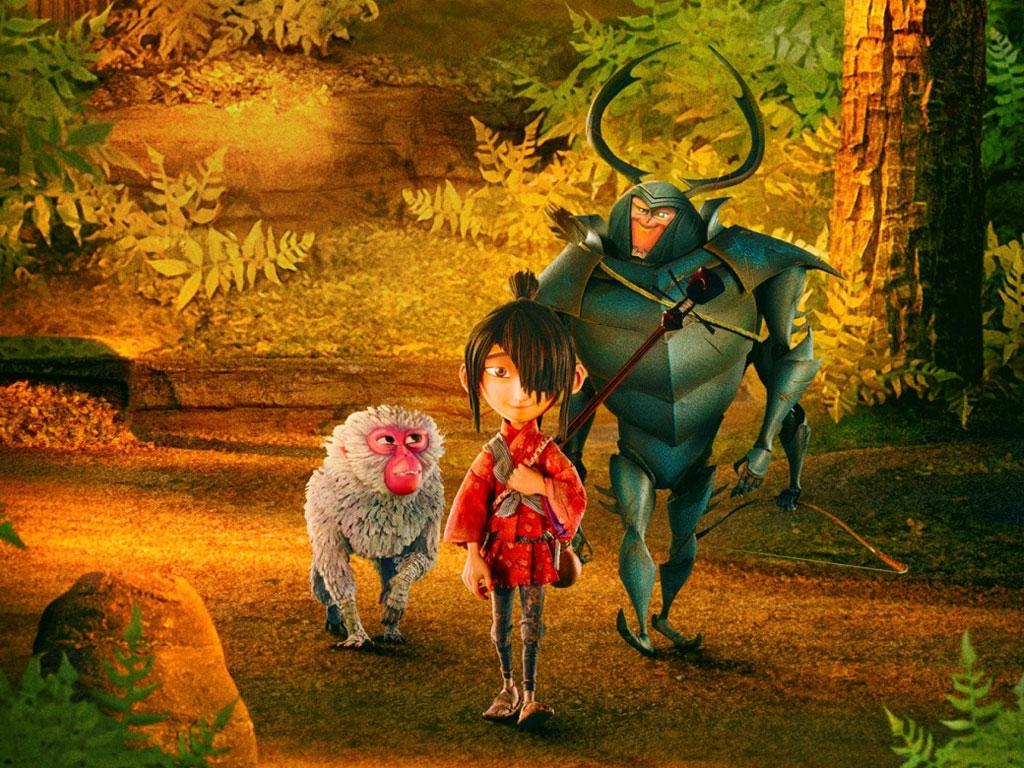Kubo and the Two Strings
by Matt Weiner
Describing the story of Kubo and the Two Strings feels deeply wrong for a film that takes great pains to remind us of the raw power of storytelling—that our lives come and go, and all we can hold onto is the story of ourselves.
But here goes anyway: Kubo (voiced by Game of Thrones‘ Art Parkinson) is a one-eyed boy who spends his days entertaining his village in a magical, ancient Japan. His nights are a lot less fun, thanks to dire if not particularly lucid warnings from his mother about returning home before dark.
As young heroes in mythical tales are wont to do, Kubo eventually stays out past sundown, invoking the wrath of familial specters (twin sisters, voiced by Rooney Mara) who doggedly pursue him through the village, leaving a trail of destruction in their wake.
Kubo’s mother saves the day, but at great cost, and Kubo soon finds himself on the run with little besides his stringed instrument known as a samisen, a talking monkey (voiced by Charlize Theron) and magical powers that grow stronger by the day.
First-time director Travis Knight makes an impressive debut after years of animation experience. Knight, also the president and CEO of Laika Studios, has given his group another modern stop-motion classic. Laika has never been a studio to tread lightly around adult themes in their animated films—but while Coraline and ParaNorman aren’t short on death, Kubo cuts to the emotional core with a story so saturated with loss that it becomes its own texture, something as visceral as the sumptuously animated hair or backgrounds.
Kubo follows the typical hero’s journey: suffer adversity, embark on a quest, encounter friends and foes, suffer more adversity, conquer evil. (None of this should come as a spoiler for the adults watching who have seen or read… well, pretty much any story before.)
But beneath the surface, Kubo and the Two Strings quietly but persistently makes us confront what it means to be alive, and just how tenuous the bonds we share are with the ones we love in this world. And the script deftly handles this emotional gut punch without getting sentimental.
All the way up to the end, the film continues to ask questions without easy answers. What’s the difference between a story, a memory and a lie? Are we more than that?
Maybe not. But it’s all we have, and if Kubo doesn’t inspire you to seek out new stories of your own, you might as well be dead already.
https://www.youtube.com/watch?v=p4-6qJzeb3A
